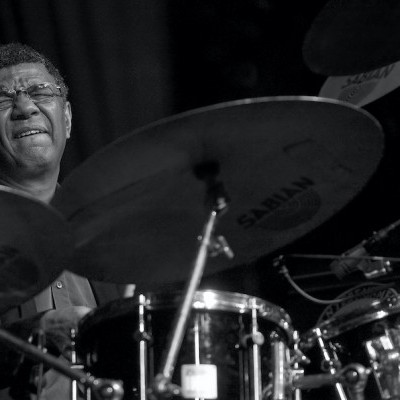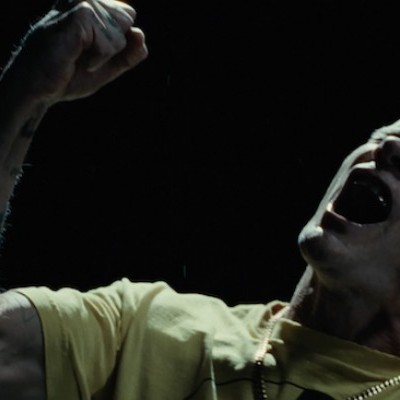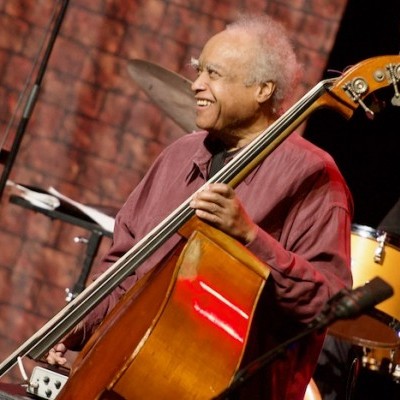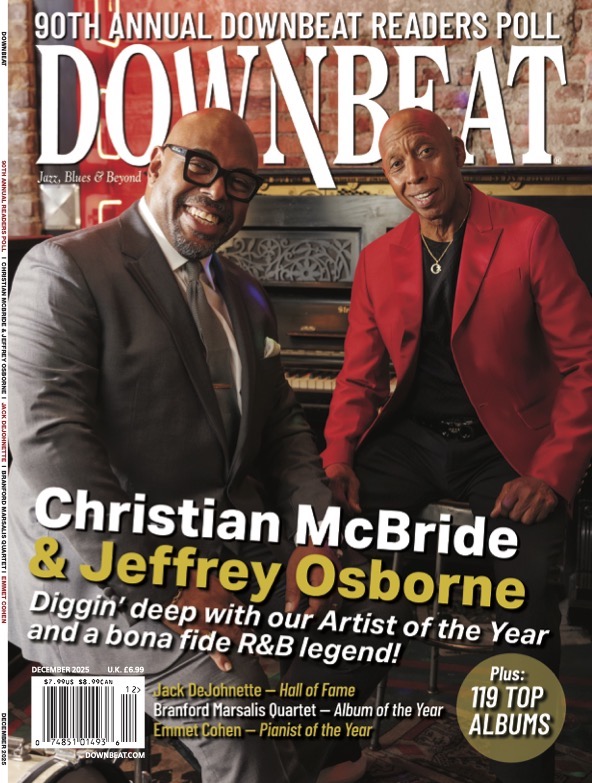Oct 28, 2025 10:47 AM
In Memoriam: Jack DeJohnette, 1942–2025
Jack DeJohnette, a bold and resourceful drummer and NEA Jazz Master who forged a unique vocabulary on the kit over his…

Walter Becker (1950–2017)
(Photo: Sandrine Lee)Considering his status as co-founder of one of America’s major pop bands of the past half century, Walter Becker was always something of an enlightened misfit. Enabled and enhanced by his longstanding creative collaborator, Donald Fagen, the dark-minded yet light-hearted Becker helped create the unique phenomenon that was—and is—Steely Dan.
The band, born of a humble but earnest songwriting partnership forged while Becker and Fagen were students at Bard College, resulted in a stunning string of albums in the ’70s, climaxing with the masterpieces Aja and Gaucho, and, after a two-decade hiatus, returning grandly with the powerful Two Against Nature in 2000, and winning the 2001 Album of the Year Grammy for their efforts.
In that same “rebirth” year, Steely Dan was rightfully inducted into the Rock and Roll Hall of Fame—quite possibly the band in that company with the strongest jazz content embedded into its music. It’s fair to say that Steely Dan has more jazz in its veins than many other high-profile bands of the past half century, and its musical message rings out daily on various radio formats, to this day.
Fagen recalled that “when we got inducted, Walter, being the wit that he is, said, ‘It wasn’t for a body of work, but for our bodies that work after all these years.’”
This summer, Becker was in absentia at significant Steely Dan shows, including at Dodger Stadium in Los Angeles and Citi Field in Queens, New York. On Sept. 3, the word came: Becker was gone, from an undisclosed health problem. But Becker had been playing with the band up until close to his passing. When the band played at the Santa Barbara Bowl in late April, part of its “The Dan Who Knew Too Much” tour, Becker seemed a bit off his usual sharp mark, but otherwise very happy to be onstage with what he considered the best band in the land.
He and Fagen, subjects of a rabid population of fans themselves, have always been musically open-eared. Their own barometer of success has partly been measured by the lofty musical company they’ve kept, and gainfully employed, in the studio and onstage.
That night in Santa Barbara, in the middle of “Hey Nineteen,” Becker launched into his customary cynical gonzo spoken-word spiel about the joys and pitfalls of hedonism at a “certain age,” although confessing he no longer partook of mind- and mood-altering substances. During his appreciative introduction of band members, he had special reverence for drummer Keith Carlock, who was on fire that night: “He is the greatest drummer of his generation,” said Becker. “If he ever decides he doesn’t like us anymore, we’ll have to retire or something.”
Now, the fate of the Dan is up in the air, possibly facing a forced retirement scenario. Fagen stated after Becker’s death that “I intend to keep the music we created together alive as long as I can with the Steely Dan band.”
During an interview for a DownBeat cover story I wrote in 2003, upon the release of what turned out to be their final album, Everything Must Go, Becker and Fagen sat on a couch in a swanky Santa Monica hotel, riffing off each other’s comments like old friends. In speaking about the central influence of jazz on their work, and their desire to forge new territory in the early ’70s, Becker commented, “We wanted to recast some of the harmonic stuff and some of the other aesthetics of jazz, like solos. The drama of the solo playing that was going on was pretty uninformed at the time, with a wall of notes coming out without any structure.”
Fagen chimed in, citing “guitar player primitive kind of stuff—bad imitations of Chicago blues players. I’m not saying we thought of this specifically at the time, but there was the idea of using jazz and big band arranging. There was, of course, some precedent there. Ray Charles had done that, mixing jazz with soul music.”
Becker added that “even just the idea that the different instruments had particular roles in the combo and particular areas of concern was not as commonly understood as you would think, at that point.”
Asked about the Fagen-Becker trick of creating some of the most sophisticated pop music on major labels, and garnering the radio play and avid fan base to keep the band alive and kicking, Becker confessed, “I think that is an admirable thing. We’ve been lucky to have both of those things, paradoxically, be true.”
After the interview, Becker and I were chatting about the virtues of self-doubt or a searching spirit in the field of guitar players, a world which can sometimes feature excessive egomania and overkill. He spoke of “self-loathing guitar players” as “the best kind.” Becker was a maverick; he was also a thoroughly music-loving, humble and self-effacing brand of genius.
It is commonplace to report, with belated musical artists, and artists of all stripes, that their legacy truly lives on through their finished work. But Steely Dan’s relatively impeccable discography makes that notion especially valid. Becker’s handiwork, as lyricist, guitarist, situation-maker and even, on some level, visionary, is there to hear on the body of ’70s albums and the two 21st-century sets.
The recordings themselves—especially once Becker and Fagen decided to indulge their fantasies of including great jazz players in their work—allowed a framework for countless solo spotlights, which have become part of the fabric and our awareness of the recorded material. Saxophonists in the Dan-ography include the legendary Wayne Shorter (in his classic “Aja” solo, in tandem with drummer Steve Gadd), Pete Christlieb (“Deacon Blues”), Phil Woods (“Dr. Wu”), and Chris Potter and Walt Weiskopf on the 2000s albums.
And there is the distinctive guitarist aspect of Becker himself, whose intriguing, spindly style—a kind of urbane blues gone left-field and always with a jazz-tinge—is immortalized on solos for the popular single “Josie” and also the enigmatically charming outro of “FM (No Static at All).” “I always look for the weirdest note to land on,” he said. “I felt that that was the least I could do for the great musical traditions which I’ve spawned. If there’s a strange way to do something, I would certainly like to know about it. I feel that I owe that to my public.”
In 1994, Becker—who had eased back into music as a producer—for Rickie Lee Jones, Lost Tribe, China Crisis and others—came out with 11 Tracks Of Whack, his first solo album. It was a dramatic pivot point, for himself and Steely Dan. The band had plotted its return from oblivion, successfully touring (in a band including jazz drum great Peter Erskine), and Becker was emerging from a dark period.
In an interview at the time (at another lush, beach-adjacent Santa Monica hotel), he remembered the painful process of making Gaucho, exacerbated by his plunge into drug addiction and other self-destructive afflictions. “I was at a point where I could either continue on the path I was going on, but not for very long,” he laughed, “or I could make an abrupt change of course and perhaps persist a little bit longer.
“I got to the point where there was no doubt in my mind that this was never going anywhere. I just didn’t want to do that yet. So I moved to Hawaii and stopped smoking, stopped drinking and stopped taking all kinds of drugs.”
Later in the ’90s, he got a place in New York City and began writing in earnest again with Fagen, with glorious, Grammy-anointed results. In describing their creative bond, Fagen spoke about their unique partnership as writers and co-conspirators. “Our writing is intuitive,” he said. “It’s nothing much planned about it, in the sense of thinking about the listener. It’s really just what amuses us, in a way. Some writer mentioned that it’s a combination of all the things we like. I think that’s true. We like jazz harmony and the kind of humor that we liked when we were kids. I think it just congealed into something. I don’t think we really planned it.
“We wanted to make money as a band, but we didn’t really set out to be pop musicians. We had failed as pop musicians, really. And so we were doing what we wanted, and we were lucky that radio picked it up. We like pop music. We like rhythm and blues and Burt Bacharach a lot, and Carole King. We grew up with a funny combination of enthusiasms, jazz and rhythm and blues and also well-written pop songs, and also standards, which are the literature of jazz.”
Becker expanded on the idea of the band “getting away with it,” scoring hits on a pop radio landscape: “These songs weren’t jazz, per se. We figured we could disguise them, and hide the jazz elements enough to not have the alarm sound the minute we appeared on the scene. We just thought that, since we liked them, that other people would like them, in spite of the stylistic difficulties or the arcane lyrics or any of those things. We thought there would be people out there—we didn’t know exactly how many, but we figured enough—who would go for this thing.”
As it turned out, there were more than enough fans willing to “go” for Steely Dan’s inimitable style, and now the world at large—and particularly the large, cross-generational, cross-demographic legion of Steely Dan aficionados—is mourning a world without Walter Becker. DB

Jack DeJohnette boasted a musical resume that was as long as it was fearsome.
Oct 28, 2025 10:47 AM
Jack DeJohnette, a bold and resourceful drummer and NEA Jazz Master who forged a unique vocabulary on the kit over his…

D’Angelo achieved commercial and critical success experimenting with a fusion of jazz, funk, soul, R&B and hip-hop.
Oct 14, 2025 1:47 PM
D’Angelo, a Grammy-winning R&B and neo-soul singer, guitarist and pianist who exerted a profound influence on 21st…

To see the complete list of nominations for the 2026 Grammy Awards, go to grammy.com.
Nov 11, 2025 12:35 PM
The nominations for the 2026 Grammy Awards are in, with plenty to smile about for the worlds of jazz, blues and beyond.…

Flea has returned to his first instrument — the trumpet — and assembled a dream band of jazz musicians to record a new album.
Dec 2, 2025 2:01 AM
After a nearly five-decade career as one of his generation’s defining rock bassists, Flea has returned to his first…

Drummond was cherished by generations of mainstream jazz listeners and bandleaders for his authoritative tonal presence, a defining quality of his style most apparent when he played his instrument unamplified.
Nov 4, 2025 11:39 AM
Ray Drummond, a first-call bassist who appeared on hundreds of albums as a sideman for some of the top names in jazz…





